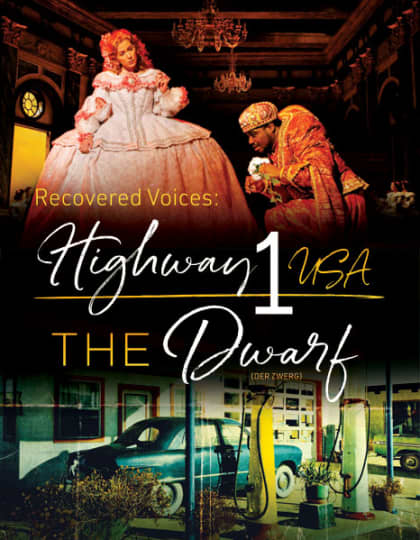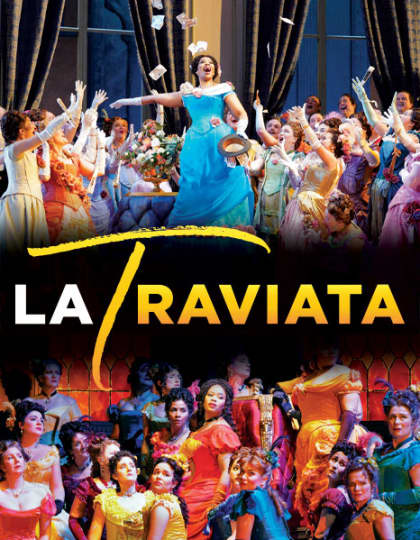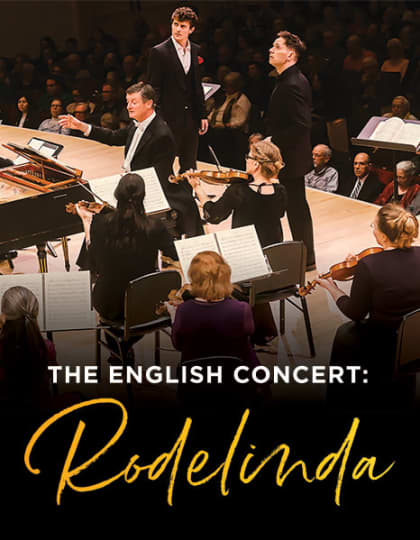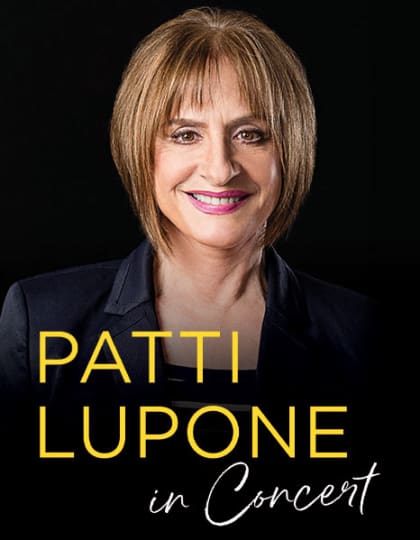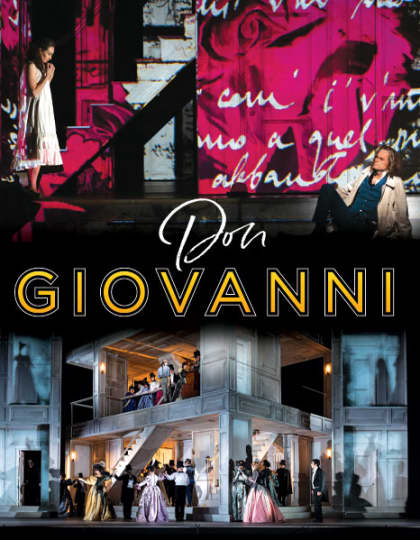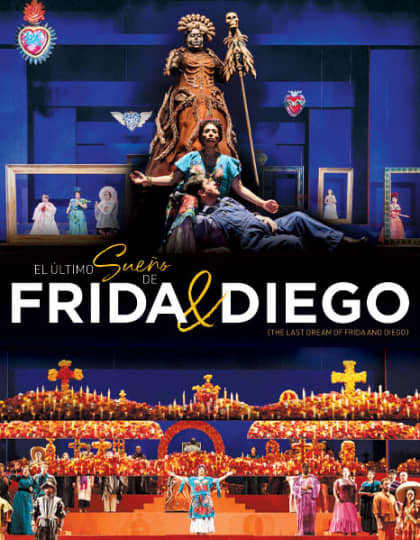The romance and heartache of two 20th-century giants
Mexico’s most iconic artists (and infamously stormy lovers) leap off the canvas in this new musical portrait from Grammy Award-winning composer Gabriela Lena Frank and Pulitzer Prize-winning playwright Nilo Cruz. When a desperate wish on Day of the Dead reunites Diego Rivera with his wife Frida Kahlo, he jumps at the chance to seek forgiveness. But Frida refuses to return to the world that caused her so much pain, until another departed soul inspires her to look back at the art (and the man) she once loved.
Resident Conductor Lina González-Granados commands a cast packed with international talent, including Daniela Mack, Alfredo Daza and Ana María Martínez in this tribute to one of the most pivotal romances in history. The artists‘ own emblematic paintings merge with a folklore-inspired score to breathe new life into the love-hate saga of Frida and Diego.
Available Now as part of a 2023/24 Season Package. With a season ticket package you get More Savings, More Benefits and More Options with the lowest price guaranteed, priority seating, and enhanced experiences. View Packages
Swipe for More

A scene from "El último sueño de Frida y Diego"
Karli Cadell Photography / San Diego OperaSwipe for More
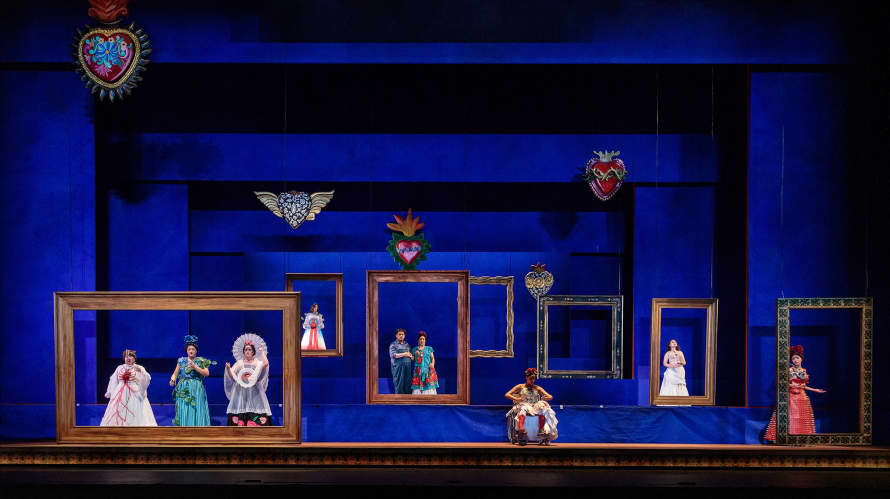
A scene from "El último sueño de Frida y Diego"
Karli Cadell Photography / San Diego OperaSwipe for More
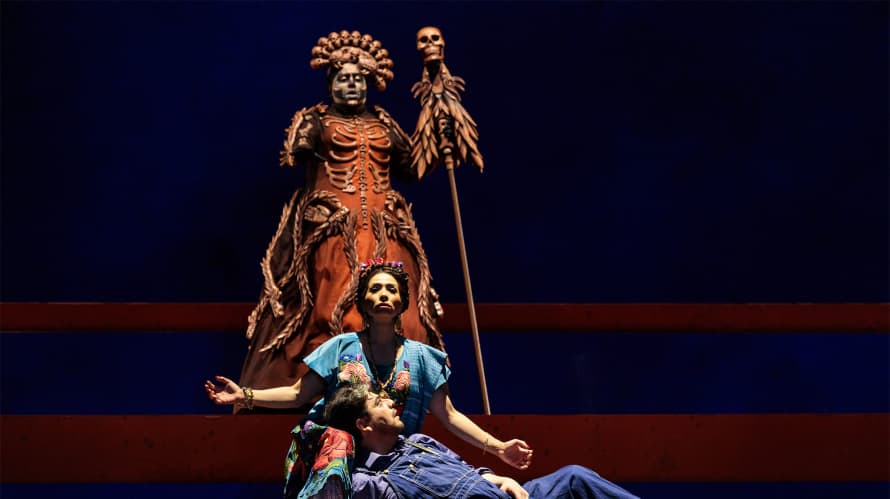
A scene from "El último sueño de Frida y Diego"
Karli Cadell Photography / San Diego OperaSwipe for More

A scene from "El último sueño de Frida y Diego"
Karli Cadell Photography / San Diego Opera“A richly scored, lyrically detailed and visually stunning work that intimately examines the tumultuous lives of Mexico’s most iconic artistic couple.
“Opera is an ideal medium for fusing magic and reality, and El último sueño de Frida y Diego...does just that with sensitivity and charm.”
Cast
- Frida Kahlo
- Daniela Mack
- Diego Rivera
- Alfredo Daza
- Catrina
- Ana María Martínez
- Leonardo
- Key'mon W. Murrah
Daniela Mack
Frida Kahlo

From: Buenos Aires, Argentina. LA Opera: Nancy in Albert Herring (2012, debut); Frida Kahlo in El último sueño de Frida y Diego (2023).
Mezzo-soprano Daniela Mack leads the vanguard of a new generation of opera singers, infusing her artistry with a mix of intensity, adventurousness, and effortless charisma.
In the 2022/23 season. Ms. Mack returns to Opera Philadelphia as Desdemona in Rossini’s Otello, the San Francisco Opera as Frida Kahlo in El Último Sueño de Frida y Diego, Detroit Opera in Osvaldo Golijov’s Ainadamar, and the Los Angeles Philharmonic in performances of John Adams Girls of the Golden West.
In recent seasons, Ms. Mack has made several important debuts including the Metropolitan Opera as the Kitchen Boy in Rusalka, Royal Opera House Covent Garden as Rosina in The Barber of Seville, Teatro Real as Rosmira in Partenope, Teatro de la Maestranza in her role debut as Romeo in Bellini’s I Capuleti e i Montecchi, and with the BBC Philharmonic as Béatrice in Béatrice et Bénédict. She also made her Carnegie Hall debut in a performance of Serse with The English Concert.
An alumna of the famed Adler Fellowship Program at San Francisco Opera, Ms. Mack has appeared there as Rosina in The Barber of Seville, Idamante in Idomeneo, Siebel in Faust, and Lucienne in Die tote Stadt for her house debut. She also performed the title role of La Cenerentola as a member of the company’s Merola Opera Program. Other recent opera engagements have included appearances with the Lyric Opera of Chicago, Santa Fe Opera, Washington National Opera, Seattle Opera, Minnesota Opera, Boston Lyric Opera, Lyric Opera of Kansas City, English National Opera, Théâtre du Capitole in Toulouse, Deutsche Oper Berlin, Ópera de Oviedo, Opéra National de Bordeaux, and the Verbier Festival. Her many roles include the title role in Carmen, Charlotte in Werther, Isabella in L’italiana in Algeri, Bradamante in Alcina, Juno in Semele, Dardano in Amadigi di Gaula, Rosmira in Partenope, Sesto in Giulio Cesare, Idamante in Idomeneo, and Dorabella in Cosi fan tutte. She also created roles in the world premieres of Kevin Puts and Mark Campbell’s Elizabeth Cree (title role) at Opera Philadelphia, and in David T. Little and Royce Vavrek’s JFK (Jacqueline Kennedy) at Fort Worth Opera with subsequent performances at Opéra de Montréal.
On the concert stage, Ms. Mack debuted with three orchestras under Charles Dutoit: Orchestra de la Suisse Romande in Ravel’s L’heure espagnole and L’enfant et les sortilèges, Boston Symphony Orchestra in L’heure espagnole, and Chicago Symphony Orchestra in Falla’s Three-Cornered Hat. She also debuted with the Mitteldeutscher Rundfunk in Rossini’s Giovanna d’Arco under James Gaffigan and performed Vivaldi’s Juditha triumphans with Boston Baroque. She debuted with the New York Philharmonic in Beethoven’s Symphony No. 9 under Alan Gilbert and with the Los Angeles Philharmonic in Manuel de Falla’s La vida breve under the baton of Rafael Frühbeck de Burgos. She performed Beethoven’s Symphony No. 9 with the Los Angeles Philharmonic, Beethoven’s Missa solemnis with the Washington Chorus, Handel’s Messiah with the National Symphony Orchestra, Ravel’s Shéhérazade with the Hong Kong Philharmonic, and Canteloube’s Chants d’Auvergne and Falla’s Siete canciones populares españolas with the Sydney Symphony. She also made her Cincinnati May Festival debut in Mozart’s Requiem under James Conlon and in an all-star gala at the Opera Theater of San Antonio.
Born in Buenos Aires, Ms. Mack studied at Louisiana State University was a finalist in the 2013 BBC Cardiff Singer of the World competition. Learn more at DanielaMack.com.
Alfredo Daza
Diego Rivera
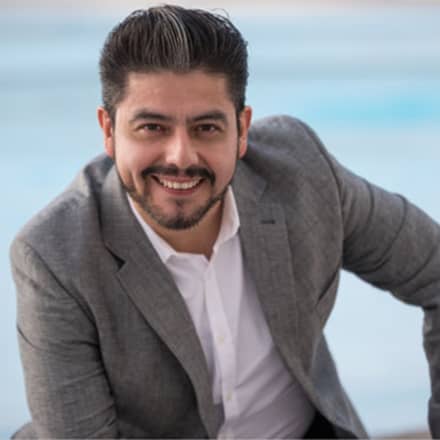
From: Puebla, Mexico. LA Opera: Ping in Turandot (2002), soloist in A Concert of Passion & Poetry (2003); Figaro in The Barber of Seville (2003); Marcello in La Bohème (2004); Tadeo Cespedes in Dulce Rosa (2013); Zurga in The Pearl Fishers (2017); El último sueño de Frida y Diego (2023).
The Mexican baritone is a great favorite at the renowned Berlin State Opera, appearing there in leading roles of Rossini, Verdi, Tchaikovsky, Gounod, Massenet and Puccini. Acclaimed Verdi portrayals in other venues include Stankar in Stiffelio and Francesco Moor in I masnadieri (both at Berlin’s Konzerthaus), Ford in Falstaff (Hamburg, Bologna), and Germont in La traviata (Hamburg, Tokyo). Also in Europe, he has sung roles as diverse as Dandini in La Cenerentola (Rome), Sir Robert Cecil in Britten’s Gloriana (Hamburg), and Scarpia in Tosca and Hermann in Catalani’s Loreley (both in St. Gallen, Switzerland).
The baritone began his international career at age 21 as an Adler Fellow at San Francisco Opera. Since then, he has been heard throughout America, including Marcello in La bohème at New York City Opera (including a PBS “Live from Lincoln Center” telecast) and Washington National Opera (where he has also sung Rossini’s Figaro); Guglielmo in Così fan tutte at Michigan Opera Theater; and Figaro, Zurga, Marcello, Ping in Turandot, and Tadeo Cespedes in Lee Holdridge’s Dulce Rosa at LA Opera. Daza can be seen on DVD as Belcore in The Elixir of Love (productions from both Glyndebourne Festival Opera and Mexico’s Opera de Bellas Artes) and Lescaut in Manon (Berlin State Opera).
Ana María Martínez
Catrina

From: San Juan, Puerto Rico. LA Opera: Mimì in La Bohème (1997, debut; 2004); Violetta in La Traviata (2001); Amelia in Simon Boccanegra (2012); Nedda in Pagliacci (2015); Cio-Cio-San in Madama Butterfly (2016); title role of Carmen (2017); Elisabetta in Don Carlo (2018); Soleá in El Gato Montés (2018); Countess in The Marriage of Figaro (2022); Catrina in El último sueño de Frida y Diego (2023).
Grammy Award winner Ana María Martínez is considered to be one of the foremost sopranos of her time, with an international career that spans the world’s most important opera houses and concert halls.
A winner of the 15th Annual Opera News Awards, her repertoire encompasses opera’s most intriguing and diverse leading ladies, and she engages her audiences season after season with signature roles, spellbinding debuts, and a myriad of captivating recordings. In addition to a full calendar of performances, Ms. Martínez continues to explore all aspects of her career, both on and off stage, highlighted by such diverse opportunities as voicing the role of opera singer Alessandra in season three of Amazon’s Mozart in the Jungle, to proudly representing her birthplace of Puerto Rico as an honoree and performer in the 62nd Annual Puerto Rican Day Parade in New York City, and all the while maintaining her commitment as a leader in the industry and as an advocate and educator to the next generation of musicians.
In 2019 Ms. Martínez joined Houston Grand Opera as their first-ever Artistic Advisor where she works with the artistic team on casting and production decisions, adjudicates the annual Concert of Arias competition, mentors and coaches HGO Studio artists, and engages with the larger Houston community on behalf of the Opera. Equally exciting, following a two year appointment as Artist-in-Residence at the Shepherd School of Music at Rice University, in July 2021 she became a professor in their Department of Voice.
Her appearances in the 2022/23 season will include Donna Elvira in Don Giovanni at the Metropolitan Opera.
Performance highlights of the 2021/22 season include the title role in Florencia en el Amazonas with Lyric Opera of Chicago and a role debut as Despina in Cosi fan tutte with Washington National Opera. On stage during the 2020/21 season, in the height of the Covid-19 pandemic, Ms. Martínez was thrilled to join San Diego Opera as Mimi in their production of La Bohème, in the world’s first-ever drive-in opera production. Virtual performances during the season included a “Living Room Recital” with LA Opera performed in Ana María’s home and available digitally. She curated two Spanish-themed virtual programs, the first for Lyric Opera of Chicago with pianist Craig Terry, was entitled Pasión Latina and featured a dynamic selection of music from Puerto Rico, Mexico, Cuba, Guatemala, Argentina and Spain. The second program, created by Ana María for Houston Grand Opera, entitled Suite Española, featured music of Spain, including zarzuela, and stared Ana María alongside HGO Studio artists. Additional performances during the season included her role debut in the title role of Tosca with Opera Philadelphia, which she performed again later in the season with Cincinnati Opera, as well as Nedda in Pagliacci with Palm Beach Opera.
Learn more at AnaMariaMartinez.com.
Key'mon W. Murrah
Leonardo

From: Louisville, Kentucky. LA Opera: Leonardo in El último sueño de Frida y Diego (2023, debut).
Keymon W. Murrah, a countertenor heralded for his wide range and “hot coal core of tone” by Schmopera.com, is a native to Louisville, Kentucky. In 2021, he was heard on the stage of the Houston Grand Opera as the winner of the 33rd Annual Concert of Arias, as the grand prize winner of the Premiere Opera Foundation + NYIOP International Vocal Competition, and finalist and encouragement award winner of Operalia.
Mr. Murrah has performed with the University of Kentucky Opera Theatre and the Bluegrass Opera. He has sung the role of Tolomeo from Handel's Giulio Cesare with the Red River Lyric Opera and Asprano in Vivaldi's Montezuma with the America Baroque Opera Co. He was selected in the Carnegie Hall’s Weill Music Institute in a Masterclass with Joyce DiDonato in 2019, and he continued his studies at the International Vocal Arts Institute. In 2020, he toured with the American Spiritual Ensemble and was a young artist at the Glimmerglass Opera Festival. In 2021, Mr. Murrah joined the Studio Artist Program at the Florida Grand Opera for the 2020/21 season and debuted Bertarido from Handel's Rodelinda as a Fleming Artist at Aspen Music Festival.
In 2018, he won the Encouragement Award for the Metropolitan Opera Council Central District Auditions and won the second place award or the Emerging Soloists Competition. In 2020 he won first place in the Camille Coloratura Competition and as a semi-finalist in the Metropolitan Opera National Council Auditions after winning the Nashville District Auditions. Also in 2021, Murrah won second place in the Rochester International Oratorio Competition.
Engagements for the 2021/22 season include the title role in Gluck's Orfeo ed Euridice at Seattle Opera and Leonardo in the world premiere of The Last Dream of Frida and Diego with San Diego Opera.
Creative Team
- Composer
- Gabriela Lena Frank
- Librettist
- Nilo Cruz
- Conductor
- Lina González-Granados
- Director
- Lorena Maza
- Scenery
- Jorge Ballina
- Lighting
- Victor Zapatero
- Chorus
- Jeremy Frank
Gabriela Lena Frank
Composer

From: Berkeley, California. LA Opera: The Five Moons of Lorca (2020, Digital Short, debut).
Moreover, she writes, "There's usually a story line behind my music; a scenario or character." While the enjoyment of her works can be obtained solely from her music, the composer's program notes enhance the listener's experience, for they describe how a piano part mimics a marimba or pan-pipes, or how a movement is based on a particular type of folk song, where the singer is mockingly crying. Even a brief glance at her titles evokes specific imagery: Leyendas (Legends): An Andean Walkabout; Cuentos Errantes (Wandering Songs); and La Llorona (The Crying Woman): Tone Poem for Viola and Orchestra. Frank’s compositions also reflect her virtuosity as a pianist — when not composing, she is a sought-after performer, specializing in contemporary repertoire.
Winner of a Latin Grammy and nominated for Grammys as both composer and pianist, Gabriela also holds a Guggenheim Fellowship and a USA Artist Fellowship given each year to fifty of the country’s finest artists. Her work has been described as "crafted with unself-conscious mastery” (Washington Post), "brilliantly effective” (New York Times), "a knockout” (Chicago Tribune) and "glorious” (Los Angeles Times). Gabriela Lena Frank is regularly commissioned by luminaries such as cellist Yo Yo Ma, soprano Dawn Upshaw, the King’s Singers, and the Kronos Quartet, as well as by the talents of the next generation such as conductor Yannick Nézet-Séguin of the Metropolitan Opera and Philadelphia Orchestra. She has received orchestral commissions and performances from leading American orchestras including the Chicago Symphony, the Boston Symphony, the Philadelphia Orchestra, the Atlanta Symphony, the Cleveland Orchestra, and the San Francisco Symphony. In 2017, she completed her four-year tenure as composer-in-residence with the Detroit Symphony under Maestro Leonard Slatkin, composing Walkabout: Concerto for Orchestra, as well as a second residency with the Houston Symphony under Andrés Orozco-Estrada for whom she composed the Conquest Requiem, a large-scale choral/orchestral work in Spanish, Latin, and Nahuatl, the language of the Aztecs. Frank’s most recent premiere is Apu: Tone Poem for Orchestra commissioned by Carnegie Hall and premiered by the National Youth Orchestra of the United States under the baton of conductor Marin Alsop. In the season of 2019/20, Fort Worth Opera will premiered Frank’s first opera, The Last Dream of Frida (with a subsequent performance by co-commissioner San Diego Opera) utilizing words by her frequent collaborator, the Pulitzer Prize-winning playwright Nilo Cruz.
Gabriela Lena Frank is the subject of several scholarly books including the W.W. Norton Anthology The Musics of Latin America; Women of Influence in Contemporary Music: Nine American Composers (Scarecrow Press); and In her Own Words (University of Illinois Press). She is also the subject of several PBS documentaries including Compadre Huashayo regarding her work in Ecuador composing for the Orquestra de Instrumentos Andinos comprised of native highland instruments; and Música Mestiza, regarding a workshop she led at the University of Michigan composing for a virtuoso septet of a classical string quartet plus a trio of Andean panpipe players. Música Mestiza, created by filmmaker Aric Hartvig, received an Emmy Nomination for best Documentary Feature in 2015.
Civic outreach is an essential part of Frank’s work. She has volunteered extensively in hospitals and prisons, with a recent project working with deaf African-American high school students in Detroit who rap in sign language. In 2017, Frank founded the Gabriela Lena Frank Creative Academy of Music, a non-profit training institution that offers emerging composers short-term retreats at Gabriela’s two farms in Mendocino County, California. Over two visits, participants receive artistic and professional mentorship from Gabriela as well as readings of works in progress by guest faculty master performers in advance of the works' public world premieres at the academy. In support of arts citizenship, the Academy also pairs participant composers and faculty performers with underrepresented rural communities in a variety of projects such as working with students at the Anderson Valley Junior/Senior High enrolled in basic music composition class.
During the 2018/19 season, Frank lead four composer residencies across the U.S., including performances of her recent works as well as large-scale commissions: composer-in-residence with Philadelphia Orchestra through 2021, visiting artist-in-residence with Vanderbilt University, a composer residency with the Pensacola Symphony Orchestra, and is the featured composer for the Orchestra of St. Luke’s Music in Color concert series. In 2017, Frank founded the Gabriela Lena Frank Creative Academy of Music in Boonville, California, which provides mentorship, readings-to-premieres residencies, and commissions for emerging composers from diverse backgrounds in addition to fostering public school programs in low-arts rural public schools.
Frank attended Rice University in Houston, Texas, where she earned a B.A. (1994) and M.A. (1996). She studied composition with Sam Jones, and piano with Jeanne Kierman Fischer. At the University of Michigan, where she received a D.M.A. in composition in 2001, Gabriela studied with William Albright, William Bolcom, Leslie Bassett, and Michael Daugherty, and piano with Logan Skelton. She currently resides in Boonville, a small rural town in the Anderson Valley of northern California, with her husband Jeremy on their mountain farm, has a second home in her native Berkeley in the San Francisco Bay Area, and travels frequently in South America.
Gabriela Lena Frank's music is published exclusively by G. Schirmer, Inc.
Nilo Cruz
Librettist

From: Matanzas, Cuba; Miami, Florida. LA Opera: The Five Moons of Lorca (2020, Digital Short, debut).
Cuban-American playwright Nilo Cruz gained national prominence in 2003 when he won the Pulitzer Prize for drama for his play Anna in the Tropics, for which he also received a Tony Award nomination. The immigrant experience is a common theme in many of Cruz's plays and he has become known for his ability to successfully weave strains of magic realism and other literary traditions into his works.
In addition to the Pulitzer, he has received numerous awards, including those from the Kennedy Center Fund, American Theatre Critics and the Humana Festival for New American Plays; as well as grants from the National Endowment of the Arts and the Rockefeller Foundation, among others.
His plays include Dancing on Her Knees; A Park in Our House; Two Sisters and a Piano; A Bicycle Country; Hortensia and the Museum of Dreams; Lorca in a Green Dress; Beauty of the Father; Hurricane; and A Very Old Man with Enormous Wings, as well as translations of Doña Rosita the Spinster; The House of Bernarda Alba; Life Is a Dream; and ¡Ay, Carmela! His work has been seen at numerous theaters around the country including, among others, South Coast Rep, the Mark Taper Forum, the Oregon Shakespeare Festival, Washington D.C.’s Studio Theatre and New York’s Public Theater; and around the world in Canada, England, France, Australia, Germany, Belarus, Costa Rica, Colombia, Japan and Spain.
As a lyricist, he is a frequent collaborator with composer Gabriela Lena Frank. He has written the libretti for The Conquest Requiem and The Santos Oratorio for Ms. Frank and the text of orchestral songs, La Centinela y la paloma. Cruz also adapted Ann Patchett’s 2001 novel Bel Canto for the Lyric Opera of Chicago, with Peruvian composer Jimmy López and recently premiered the oratorio Dreamers by López at Cal Performance in Berkeley, California.
Cruz, who received an M.F.A. from Brown University and an honorary doctorate degree from Whittier College, has twice previously served as a playwright-in-residence: In 2000, for the McCarter Theatre, in Princeton, N.J., and in 2001 for the New Theatre in Coral Gables, Florida, which commissioned Anna in the Tropics. Cruz has also taught drama at Yale, Brown and the University of Iowa. During the 2019/20 academic year, he was the Hearst Theater Lab Initiative Distinguished Visiting Playwright-in-Residence at the UCLA School of Theater, Film and Television. He is a member of the New Dramatists.
Lina González-Granados
Conductor
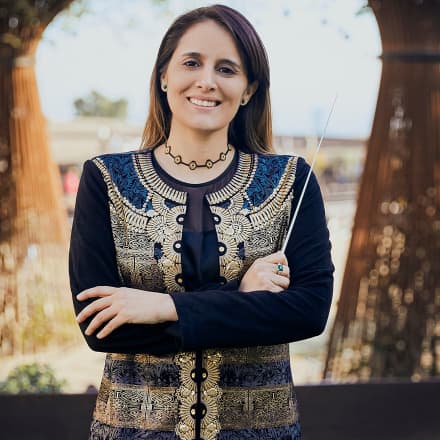
From: Cali, Colombia. LA Opera: Lucia di Lammermoor (2022, debut); The Rape of Lucretia (2023). She became Resident Conductor in 2022.
Praised for her "attention to orchestral colors" (OperaWire) and ability to create "lightning changes in tempo, meter, and effect" (Boston Musical Intelligencer), Colombian-American Lina González-Granados has distinguished herself nationally and internationally as a talented young conductor of symphonic and operatic repertoire. Her spirited interpretations of the orchestral repertoire, as well as her dedication to highlighting new and unknown works by Latin-American composers, have earned her international recognition, most recently as the recipient of the 2021 Sphinx Medal of Excellence, the third prize and ECHO Special Award (European Concert Hall Organization) of La Maestra Competition, and the 2020 and 2021 Solti Foundation US Career Assistance Award.
She was the winner of the Fourth Chicago Symphony Orchestra Sir Georg Solti International Conducting Competition, and became the new Solti Conducting Apprentice under the guidance of Riccardo Muti, beginning in February 2020. She has held positions as Conducting Fellow of the Philadelphia Orchestra and Seattle Symphony.
Her 2021/22 season highlights include returns to the New York Philharmonic and Rochester Philharmonic, as well as debuts with the National Symphony (USA), Ann Arbor Symphony, Gulbenkian Orchestra, Spanish National Orchestra, Barcelona Symphony, Nürnberger Symphoniker, Filarmonica Arturo Toscanini, Kristiansand Symphony, Tapiola Sinfonietta, Polish National Radio Symphony, Orquesta del Principado de Asturias, Orquesta Sinfónica de Castilla y León and Tenerife Symphony.
She will also conduct The Barber of Seville at the Dallas Opera.
Recent appearances include performances with the New York Philharmonic, San Francisco Symphony, Philadelphia Orchestra, Rochester Philharmonic, Seattle Symphony, San Antonio Symphony, Louisiana Philharmonic, Rhode Island Philharmonic, Orquesta Sinfónica Nacional de Colombia, and Filarmónica de Medellín. She has had the opportunity to work with world- renowned artists such as Yefim Bronfman, Pinchas Zukerman, Giancarlo Guerrero, Zubin Mehta, Marin Alsop and Yannick Nézet-Séguin.
She is an active and fervent proponent for the inclusion and development of new works for chamber and large orchestra, especially music from Latin-American composers. She is the Artistic Director of Unitas Ensemble, a chamber orchestra she founded that performs the works of Latinx composers, and provides access to free community performances for underserved communities. Her work with Unitas has earned her numerous community awards, most recently a Spark Boston award from the City of Boston. She has also commissioned multiple World, North-American, and American premieres, as well as the creation and release of the Unitas Ensemble album Estaciones, recorded alongside the Latin Grammy-winning Cuarteto Latinoamericano.
Born and raised in Cali, Colombia, Lina González-Granados made her conducting debut in 2008 with the Youth Orchestra of Bellas Artes in Cali. She holds a Master’s Degree in Conducting with Charles Peltz, a Graduate Diploma in Choral Conducting from New England Conservatory with Erica Washburn, and a Doctor of Musical Arts in Orchestral Conducting from Boston University. Her principal mentors include Marin Alsop, Bernard Haitink, Bramwell Tovey and Yannick Nézet- Séguin.
Learn more at LinaGonzalezGranados.com.
Read a feature article about her here.
Read the LA Times review of her 2022 LA Philharmonic debut here.
Lorena Maza
Director
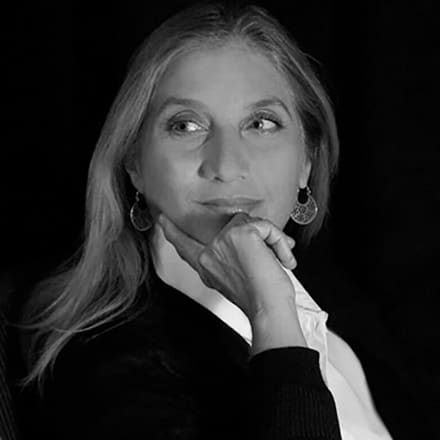
From: Mexico City, Mexico. LA Opera: El último sueño de Frida y Diego (2023, debut).
Stage director Lorena Maza has directed more than 50 plays, five operas and five musicals. She has been director of Mexico’s National Theater Company, director of Teatro Helenico and of Teatro UNAM, where she managed three venues and produced 35 plays a year. She has been an acting teacher for more than 20 years, in the Faculty of Philosophy and Letters at the National University of Mexico as well as at CUT–UNAM.
She has been recognized with 11 awards for best direction and best play of the year. With her work she has participated in six national and international festivals; has translated more than 40 dramatic texts, and was the translator for National Theater LIVE. In the private sector, she founded and directed the Ocesa theater department of Grupo CIE, producing the musical Disney’s Beauty and the Beast, with more than 650,000 spectators. She wrote, directed and co-produced Bésame Mucho, Ocesa’s first original musical with more than 500 performances and 350,000 spectators. In 2017, she opened her own production company, 19TEATRO, together with other theater professionals.
Jorge Ballina
Scenery
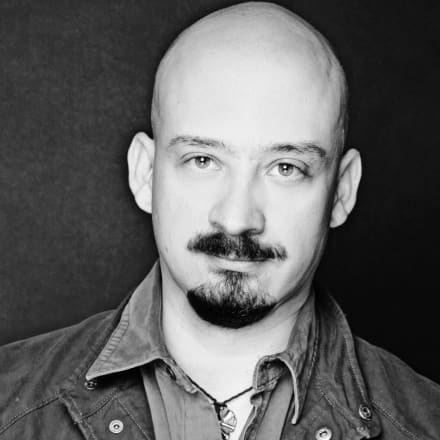
From: Mexico City, Mexico. LA Opera: El último sueño de Frida y Diego (2023, debut).
Jorge Ballina graduated with a degree in architecture at Universidad Iberoamericana in order to work as a scenic designer. He studied and collaborated with set and lighting designer Alejandro Luna. He has designed more than 100 sets for Mexican and international productions of opera, theater and dance. His work has been presented in more than 12 countries.
He is a member of the Mexican National System of Art Creators. His work has been exhibited in five Prague Quadrennials where he won a Honorary Mention in 2003. He also won the Gold Medal for Set Design at the World Stage Design Toronto 2005 exhibition.
He has directed (and designed) the theater-dance pieces Filling the Void and Giselle síies el. He made his debut as an opera director with a very successful production of Benjamin Britten’s Death in Venice.
Learn more at JorgeBallina.com.
Victor Zapatero
Lighting

From: Mexico City, Mexico. LA Opera: El último sueño de Frida y Diego (2023, debut).
Víctor Zapatero's career as a lighting designer covers opera, theater and dance; collaborating on the most outstanding productions in Mexico. In 2010 he was selected as lighting director for the Bicentennial Celebration in the traditional and commemorative Noche del Grito (Night of the Scream) at the Plaza Zócalo in Mexico City. In 2012 he collaborated as lighting coordinator for Robert Wilson's production of the Philip Glass opera Einstein on the Beach at the Palacio de Bellas Artes in Mexico City. In the same year he illuminated the inauguration of the scenic amphitheater designed by James Turrell at Hacienda Ochil, Yucatan. At the Palacio de Bellas Artes, his many productions include The Magic Flute (2000); Death in Venice (2011); Rigoletto (2014), Don Giovanni (2015), Rusalka (2018) and Kaija Saariaho's L'amour de loin (2019). For theater, he collaborated on productions of Privacy, Macbeth and Man of La Mancha, the latter awarded as the best lighting design in a musical work at the Metropolitan Theater Awards. In dance he recently collaborated on Omphalos by the renowned belgian choreographer Damien Jalet, performed in Mexico and Germany. In recent years, he has begun ventures as a visual artist creating notable and thought provoking immersive light installations that place the viewer as the protagonist of each piece. The Forest (El Bosque), his first piece, premiered in 2019 at the Cervantino International Festival. SOMA The Tree of Life is his second installation made with multicolored light projections on the surface of the trees which symbolizes a reconciliation between Heaven and Earth. He is currently collaborating in a project to illuminate a large cenote cave in the nature reserve of Xibalbá, Yucatan.
Learn more at VictorZapatero.com.
Jeremy Frank
Chorus
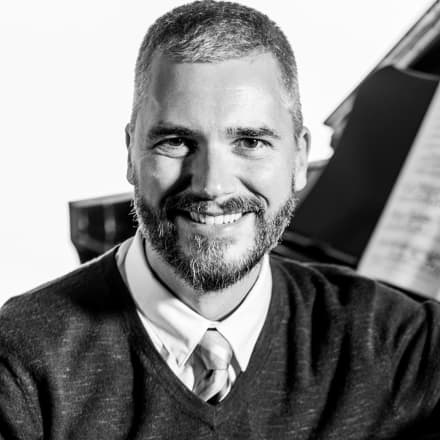
Jeremy Frank became Chorus Director in 2022.
Since joining LA Opera in 2007, he has served as associate chorus director (since 2011) and assistant conductor, and he has worked closely with the Domingo-Colburn-Stein Young Artist Program. Before becoming Chorus Director, he previously directed the LA Opera Chorus for the Plácido Domingo 50th Anniversary Concert (2017) and for The Clemency of Titus (2019). One of his generation’s most respected pianists and vocal coaches, he has collaborated with major opera houses throughout the United States. He has assisted in the preparation of operas and vocal chamber music at the LA Philharmonic. As a pianist, he has partnered with Sondra Radvanovsky, J'Nai Bridges, Eric Owens, Brandon Jovanovich, Rodell Rosel, Dolora Zajick, Kate Lindsey and Susan Graham. He accompanied Joyce DiDonato at the 54th Grammy Awards, the first time the ceremony featured a performance by a classical singer.
In partnership with the Getty Villa and LACMA in Los Angeles and the Phillips Collection in Washington D.C., he has curated multimedia recitals which draw connections between the classical vocal repertoire and special exhibits in the museums. He is a frequent collaborator at Wolf Trap Opera as an assistant conductor, chorus master and recitalist. He has been a guest coach at the Opernfestspiele St. Margarethen, in Esterhazy, Austria, and he helped prepare Seattle Opera’s Ring cycle in 2013. He has been a guest faculty member for young artist programs at Utah Opera and Seattle Opera, and he is a part-time lecturer in vocal arts and opera at the University of Southern California. (JeremyMFrank.com)
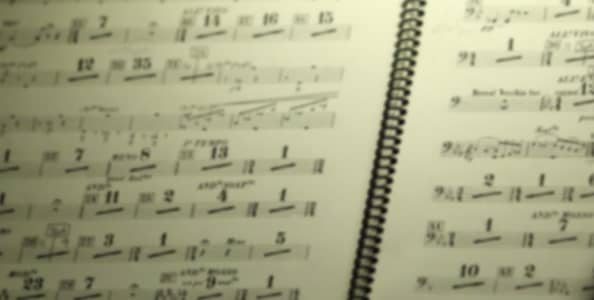
Synopsis in English

Synopsis in English
Act One
A chorus of villagers gathers to await their departed loved ones on the day of the dead—they summon them by name and memory. An infirm Diego Rivera appears quietly among them, but stays apart. Villagers notice him and a few, on a dare, speak to him. They joke affectionately about the ritual, explaining that “it’s the faith in your soul” that brings back the dead, and wish him well. Diego summons up the courage to speak to Frida; he sings an aria (“Come back to me”) revealing his fears and loneliness, and collapses to the ground. He confesses that he would like to accept god, and begs Frida to come “since you have never returned.” Villagers help Diego up; an old woman tries to sell him flowers. He makes a joke of it, to save his dignity, but disconcerted by her, he exits. She reveals her true identity as Catrina, Keeper of the Dead.
Catrina asks for the Lord’s mercy on Diego Rivera, and summons Frida Kahlo. Frida ascends from below, dressed plainly (not as “Frida Kahlo”), and demands to know what Catrina wants of her. She bristles at the suggestion that Diego is calling her, and tries to send Catrina packing. Catrina charges Frida with accompanying her dying husband on his journey to the underworld. This stops Frida cold.
Frida sings an aria (“The world”) about having found release in death—release from her mercurial relationship with Diego, and blessed release from agonizing pain. “Why go back to the world?” Catrina tries to persuade Frida that Diego is lost without her, but Frida challenges her, preferring her refuge of darkness and silence. Finally, Catrina implores Frida to be “an angel to Diego,” but Frida’s retort: “In my life he was a demon.”
A caravan of Departed Souls enters with bundles of fabric and clothing as they prepare for their return. They try to tempt Frida with their wares, but she declines. Catrina catches a young man trying to sneak back to the world dressed as a woman and chases him off.
Meanwhile, Frida notices a young actor, Leonardo, practicing his impression of Greta Garbo. He wants to go back as Garbo, to please a Garbo fan who waits every year for his idol. “I do it to go back to the world,” Leonardo tells Frida. “To be an actor once again.” Frida wavers for a moment, but stops herself.
Leonardo seduces Frida with the possibility of painting “a new Frida,” one “without pain, without anguish.” He dresses her up in her trademark clothes, adorning her hair with ribbons and flowers, appealing to her vanity and the pleasure she took in her art. Catrina returns, calling out the names of those who have been summoned, and readying them for departure. She calls on Frida, who continues to demur. Catrina notices Leonardo in his Garbo costume, forbidding his ruse, but Frida pleads for him, and Catrina relents.
As Catrina prepares to usher the departed out, Frida hesitates. Leonardo keeps trying to persuade her, but she says “What’s the use of going back?” At the last minute, Frida calls out to Catrina and says she wants to go back. Catrina allows it, but not before laying out the rules: 24 hours only, and no touching: “A caress can cost you the memory of pain.” As Frida walks toward the path of light, she sings “I’m coming back to you, my art.”
Act Two
Diego is on a scaffold adjacent to a canvas. The canvas becomes transparent; the painting seems to come to life as the figures sing to Diego, defying his artistic abilities, expressing his decline in life, the world of politics and art. The canvas becomes opaque again, Diego wants his colors to embrace his mortality and take him to the underworld, but Diego senses Frida, and sings “Show me your face”. As she rises from the ground, Diego says “Frida.” Her response: “Here I am, Diego. I told myself I would never come back but here I am." Diego rushes to embrace her, but she stops him.
Diego thinks he is dreaming her. But she goes on to assert that she’s not a dream: “You’re not dreaming me. I am the dead painter.”
The canvas flies out as: Frida and Diego find themselves in Alameda Park, among the living and the departed souls strolling together (“To return”). Diego is focused on Frida, and Frida on the vibrant life around her. He once again tries to embrace her, but “there are rules,” she tells him. They continue to stroll, interacting companionably with vendors. Diego keeps pressing for intimacy with Frida, which she keeps avoiding (partly because of the rules, but partly because she doesn’t want to get caught up again in the vortex of their relationship). Finally, they have this blunt exchange:
Diego: Is it you, Frida?
Frida: What is left of me.
Diego: Much is left.
Frida: Yes, all the hurt that I painted/instead of killing you.
Diego: You should have killed me.
Frida: Then I would’ve had/to kill myself afterwards.
A beggar woman interrupts them, and her plea brings them out of themselves and reminds them of the wider world—particularly its injustices, which is a deep bond between them. They sing a duet (Tenochtlitán), which is not a love duet, but a hymn to the city and its broken, beautiful past. The beggar woman turns out to be Catrina. Diego notices the presence of death in her, and he is reminded of his own mortality.
Frida finds Leonardo among the people strolling in the park. He tells her he has visited Greta Garbo’s fan and has fulfilled his fantasy of meeting the movie star. Diego approaches Frida and says “Let us go home.” Diego and the chorus sing “Close your eyes” as they lead Frida back to her beloved home, which magically assembles around them. Diego invites Frida to sit beside him, but she is drawn to her easel.
Frida sings “Hand me my brush,” about wanting to return to painting, as Diego looks on. He begs her to embrace him, but she tells him she can’t. The two end with, “We made fun of love, to love one another freely.” Frida looks at him, scrutinizes his clothes, his face, his hands. Suddenly she hugs him. Frida is instantly racked by pain, and the moment becomes almost psychedelic, “The memory of pain.” Diego invites her to paint with him, and three Fridas appear (like her own painted images), beckoning her into the canvas. Diego and Frida enter the picture frame, creating their own alternate reality.
Frida and Diego try to cling to their impossible dream of staying together inside a painting even as the chorus of departed souls sings of the end of the Day of the Dead and prepares to return to the underworld. Catrina begins marshalling the souls, and Leonardo bids a final farewell to the world. Catrina angrily notices Frida’s absence, but keeps her procession moving.
Left alone, Frida realizes that she and Diego cannot live in a dream of art—that their art was always a response to the world. Diego is ready to die at this moment—is he about to lose Frida to Catrina. He is ready to take his chances of being with Frida in the underworld. He calls out to the God of Mictlan (God of the underworld). Catrina re-appears. “Who calls?” Diego tells her his time has come. Catrina reminds him that it’s not up to him, but Frida begs her to help him.
Catrina and Frida sing Diego toward death (“Close your eyes”). When she senses that Diego is ready, Catrina calls out to the god of Mictlan, and Diego succumbs to his mortality.
As Frida sings that she and Diego will be united for eternity, the set opens up to reveal an Aztec pyramid and the God of Mictlan. The chorus sings of his deliverance, of the evergreen power of his paintings, and Frida and Diego whisper their names to one another, as they are united in the underworld.
Courtesy of San Francisco Opera

Sinopsis en Español

Sinopsis en Español
1 Acto
Un coro de aldeanos está reunido el Día de Muertos esperando a sus amados difuntos – los llaman por su nombre y por sus recuerdos. Un Diego Rivera débil aparece silenciosamente entre ellos, pero se mantiene a distancia. Los aldeanos lo ven y algunos se retan a hablarle. Bromean afectuosamente acerca del ritual, explicándole que “es la fe en tu alma” la cual permite que regresen los muertos y le desean que este bien. Diego se arma de valor para hablar con Frida; canta una aria (regresa a mi) revelando sus miedos y su soledad y se desploma al piso. Confiesa que quisiera aceptar a Dios, y le suplica a Frida que venga “ya que jamás has regresado”. Los aldeanos lo ayudan a levantarse; una anciana trata de venderle flores. El hace bromas para salvaguardar su dignidad, pero desconcertado por la mujer, se va. La anciana revela su verdadera identidad como la Catrina, Guardian de Los Muertos.
La Catrina ruega al Señor que tenga piedad de Diego Rivera y llama a Frida Kahlo. Frida asciende desde abajo, vestida sencillamente (no como Frida Kahlo), y le exige a la Catrina que le diga lo que quiere de ella. Ella se enfurece cuando sabe que Diego la está llamado y trata de echar afuera a la Catrina. La Catrina le pide a Frida que acompañe a su moribundo esposo en su viaje hacia el inframundo. Esto deja a Frida helada.
Frida canta una aria (El Mundo) donde ha encontrado la liberación en la muerte – liberación de la volátil relación con Diego, y una bendita liberación del agonizante dolor. ¿“Por qué regresar al mundo”? La Catrina trata de persuadir a Frida diciéndole que Diego está perdido sin ella, pero Frida la desafía, prefiriendo su refugio de obscuridad y silencio. Finalmente, la Catrina le implora a Frida que sea un “ángel para Diego” pero Frida argumenta: “en mi vida él fue un demonio”.
Una caravana de Almas Difuntas entra con bultos de ropa y tela mientras se preparan para regresar. Tratan de seducir a Frida con sus objetos, pero ella los rechaza. La Catrina se da cuenta de que un joven trata de regresar a hurtadillas al mundo vestido de mujer y lo echa.
Mientras tanto, Frida ve a un joven actor, Leonardo, practicando su personificación de Greta Garbo. A él le gustaría regresar como Garbo, para complacer a un fan de Garbo que espera cada año a su ídolo. “Lo hago para regresar al mundo”, Leonardo le dice a Frida. “Para ser un actor una vez más”. Frida duda por un momento, pero se detiene.
Leonardo seduce a Frida con la posibilidad de pintar a “una nueva Frida”, una “sin dolor, sin angustia”. La viste en su ropaje característico, adornando su pelo con listones y flores, recurriendo a su vanidad y el placer que tenía por su arte. La Catrina regresa gritando los nombres de aquellos que han sido llamados y los prepara para su partida. Le llama a Frida quien continúa objetando. La Catrina ve a Leonardo con su disfraz de Garbo, prohibiéndole su treta, pero Frida aboga por él, y la Catrina cede.
Cuando la Catrina se prepara para encaminar a los difuntos fuera del mundo, Frida duda. Leonardo continúa tratando de persuadirla, pero ella le dice, ¿“de qué sirve que regrese”? En el último momento Frida le habla a la Catrina y le dice que quiere regresar. La Catrina lo permite, pero no sin antes establecer las reglas: solamente por 24 horas, y no puede tocar a nadie. “Una caricia puede costarte el recuerdo del dolor”. Mientras Frida camina hacia el camino de la luz, canta “Regreso a ti, mi arte”.
2 Acto
Diego está en un andamio junto a un lienzo. El lienzo se vuelve transparente; la pintura cobra vida en tanto que las figuras le cantan a Diego, desafiando sus habilidades artísticas, expresando su deterioro en la vida, el mundo de la política y el arte. El lienzo se vuelve opaco de nuevo, Diego quiere que sus colores acojan su inmortalidad y lo lleven al inframundo, pero Diego presiente a Frida, y canta: “muéstrame tu cara”. Cuando ella surge de la tierra, Diego dice “Frida”. Su respuesta es: “Aquí estoy Diego. Me había prometido nunca regresar, pero heme aquí”. Diego corre a abrazarla, pero ella lo detiene. Diego piensa que la está soñando. Pero ella continúa aseverando que no es un sueño: “No me estás soñando. Soy la pintora muerta”.
El lienzo vuela hacia fuera al mismo momento que: Frida y Diego se encuentran en el Parque de la Alameda entre los vivos y las almas de los difuntos todos juntos caminando (“Regresar”). Diego enfoca su atención en Frida y Frida en la dinámica vida a su alrededor. Una vez más trata de abrazarla, pero “hay reglas” ella le dice. Ellos continúan paseándose e interactuando afablemente con los vendedores. Diego continúa presionando para tener un acercamiento intimo con Frida, el cual ella sigue evitando (en parte por las reglas, pero también porque no quiere caer otra vez en el torbellino de su relación). Finalmente, tienen este franco dialogo:
Diego: ¿Eres tú Frida?
Frida: Lo que queda de mí.
Diego: Todavía hay mucho.
Frida: Si, todo el dolor que pinté en vez de matarte
Diego: Deberías haberme matado.
Frida: Entonces hubiera tenido que matarme después.
Una limosnera los interrumpe y sus suplicas los saca de ellos mismo y les recuerda el extenso mundo – particularmente sus injusticias, lo cual es algo que los une profundamente. Cantan un dueto (Tenochtitlán), el cual no es un dueto amoroso, pero un himno a la ciudad y su roto y hermoso pasado. La limosnera no es otra que la Catrina. Diego nota la presencia de la muerte en ella, y el recuerda su propia mortalidad.
Frida encuentra a Leonardo entre la gente que se pasea en el parque. Él le dice que ha visitado al fan de Greta Garbo y que ha cumplido con su fantasía de conocer a la artista de cine. Diego se acerca a Frida y le dice: “vámonos a casa”. Diego y el coro cantan “cierra tus ojos” mientras guían a Frida de regreso a su amada casa, la cual mágicamente se arma a su alrededor. Diego invita a Frida a que se siente cerca de él, pero ella es atraída por su caballete.
Frida canta “pásame mi pincel”, queriendo regresar a pintar, mientras Diego la mira. El le suplica que lo abrace, pero ella le dice que no puede. Los dos terminan con, “nos burlamos del amor, amándonos uno a otro libremente”. Frida lo ve escudriñando su ropa, su cara, sus manos. De repente ella lo abraza. Frida inmediatamente se dobla del dolor, y el momento se vuelve casi psicodélico, “el recuerdo del dolor”. Diego la invita a pintar con él y tres Fridas aparecen (como su propia imagen pintada), atrayéndola hacia el lienzo. Diego y Frida penetran en el marco del cuadro, creando su propia realidad alterna.
Frida y Diego tratan de aferrarse a su sueño imposible de quedarse juntos dentro de una pintura al mismo tiempo que el coro de almas de los difuntos canta acerca del final del Dia de los Muertos y se preparan para regresar al inframundo.
La Catrina empieza a reunir a las almas, y Leonardo ofrece su último adiós al mundo. La Catrina enfurecida nota la ausencia de Frida, pero continúa avanzando a su procesión.
Ya sola, Frida se da cuenta que ella y Diego no pueden vivir en un sueño de arte—que su arte siempre fue una respuesta al mundo. Diego está listo para morir en este momento –está a punto de perder a Frida con la Catrina. Está listo para probar su suerte y estar con Frida en el inframundo. El apela al Dios Mictlān (El Dios del Inframundo). La Catrina reaparece. “¿Quién llama?” Diego le dice que su momento ha llegado.
La Catrina y Frida van cantándole a Diego hacía la muerte (Cierra tus ojos). Cuando siente que Diego está listo, La Catrina le habla al Dios Mictlān y Diego sucumbe a su mortalidad.
Mientras Frida canta que Diego y ella estarán unidos hasta la eternidad, el escenario se abre para mostrar una pirámide azteca y al Dios Mictlān. El coro canta su salvación, por el perenne poder de sus pinturas, y Frida y Diego murmuran el uno a otro sus nombres, a la vez que se encuentran unidos en el inframundo.
Company premiere
Sung in Spanish with English subtitles
Co Production of San Diego Opera and San Francisco Opera
Running time: approximately two hours and 15 minutes, including one intermission
General On-Sale June 12
Buy Now as Part of a Package-
GET ACCESS {{ performance.display_time }}AvailableOnline{{ performance.display_day }}{{ performance.display_month_clean }} {{ performance.display_date }}

